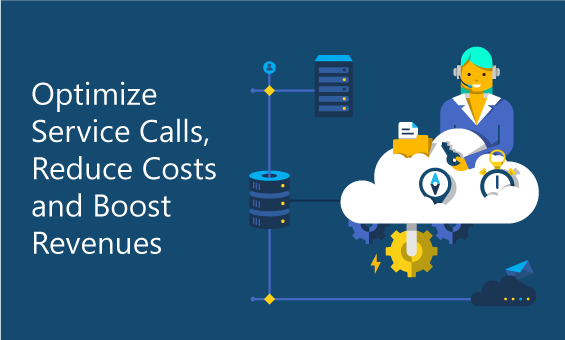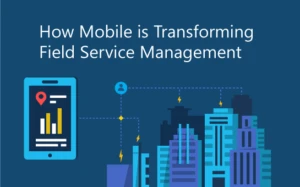
Make the Most of that Field Service Call! How to Use Field Service Management to Drive Efficiencies & Seize Opportunities
Field service is the number one way companies respond to service requests. Doing it wrong leads to return visits and added costs. Companies that do it right enjoy a strategic advantage. When companies optimize service calls and give field staff access to the real-time information they need, first-time-fix rates go up and costs go down. The result? More satisfied customers, lower costs and higher revenues.
In a report on field service outcomes, the Aberdeen Group said “65% of incoming service requests require a field visit or dispatch. Nearly 26% of these dispatches require secondary or additional follow-up visits." With the cost of dispatching an agent now ranging from $150 to over $1,000, reducing the number of follow-up visits represents significant potential cost reductions. With better predictive scheduling and asset allocation, the cost per dispatch can be driven down as well.
Disconnected service agents miss opportunities and drive up costs.
When field service agents don’t have real-time access to the information they need, they make mistakes that could have been avoided. They go to a call not knowing that they will need a piece of equipment or that the equipment is not in stock. On site, they lack access to critical information they need to make a repair. Dispatchers send agents who are far away, instead of available agents who are nearby. In each case, the cost of service delivery goes up: an outcome that could have been avoided through better connected systems and people.
Connect field agents to optimize service calls.
What if dispatchers could send a field agent who was qualified, had the right inventory and was located nearby? What if, when field agents encountered questions on-site, they had immediate access to an expansive knowledge base, well-informed peers, service manuals, and supervisors at the office?
The first-time-fix rate would immediately go up, cutting the number of repeat calls required to finish a job. Customer satisfaction would increase, improving customer retention rates. Field agents would be available to do more jobs in less time, increasing both revenues and utilization rates.
Such efficiencies can be gained through the implementation of field service management software that connects field agents with supervisors and equipment, improves scheduling and dispatch, increases visibility of SLAs and customer expectations, and leverages existing field service capabilities through powerful technology and analytics. Companies that make the most of opportunities offered by field service management solutions will gain a strategic advantage over those that maintain the status quo using existing tools.
Ready to optimize your service calls?
With an end-to-end field service management solution that connects field agents to their supervisors, peers, and critical data; offers a minimum learning curve; and guarantees rapid deployment, field service capabilities for Dynamics CRM provides powerful tools to improve field service performance. Learn how this can optimize field service, reduce costs, and drive revenue growth.
Don't get left behind. Be one of the companies that unlock the efficiencies of better connected field agents.
Questions on Microsoft Dynamics Business Solutions? Call 1-888-477-7989


